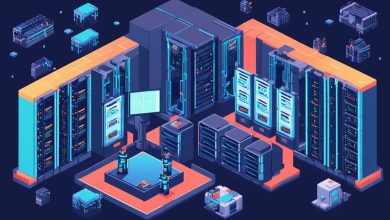
Artificial intelligence presents a powerful paradox for modern businesses. Its positive potential – driving efficiency, innovation, and entirely new business models – is undeniable. Yet it also compels fundamental shifts in how we structure work, manage talent, and define organizational purpose. Success depends not on technology adoption alone, but on developing a comprehensive, human-centered AI strategy that addresses these apparent tensions with clarity and foresight.
This starts with a firm foundation: robust governance, data security, and ethical deployment. AI must be introduced in a way that protects the business and its stakeholders, builds trust, and ensures long-term sustainability. At Checkout.com we ensure this through a comprehensive AI risk governance framework – embedding responsible practices from the outset to safeguard data.
The initial temptation when it comes to AI in the workplace is often to view it primarily as a tool for automation: a means to streamline operations and reduce costs. While valid, this is a narrow perspective. Instead, a forward-looking AI strategy demands a broader vision – one that asks not only “What can AI do for us?” but “How can AI empower our people to achieve more and work differently?” This requires fostering new digital fluency, enabling employees to collaborate effectively with intelligent systems, whether generative or agentic. At Checkout.com, this begins with tools designed to augment individual capabilities – enhancing, not replacing, human input.
But this isn’t just about turning everyone into technologists. While we expect employees to become fluent in working alongside AI, we also ask them to tune into what makes them unlike machines – and to harness those qualities as AI’s natural complement. We encourage everyone to lean in, to “go for it” without hesitation, and never feel they’re cheating by using AI. When used with their brains – not instead of them – AI sharpens their thinking. In doing so, we’re preparing every employee for long, successful careers – whether at Checkout or beyond. The world is changing fast, and we are clear-eyed about that – for the benefit of both our people and our business.
True transformation happens when organizations move beyond off-the-shelf solutions and develop bespoke AI applications tailored to their needs. This strategic investment fosters a culture of innovation – encouraging experimentation and empowering teams to explore new approaches within their areas of expertise. In fact we run thousands if not millions of experiments daily. This reframes AI from a task-based tool to a dynamic capability platform. Consider AI-driven Integrated Development Environments (IDEs): enabling engineers to code using natural language, while opening doors for non-coders to contribute to tool creation.
As AI takes over more routine tasks, human effort must pivot. The well-worn language of “higher-value activities” – strategic thinking, creativity, relationship building – is often criticized for masking much fretted over job displacements. But higher-value work needn’t be a euphemism or a cliché. A responsible AI strategy must confront this reality directly, guiding the evolution of work with intention. Because we face a choice: a future dominated by relentless “efficiency”, where deference to AI diminishes human ingenuity – or one where technology pushes people to think more deeply, go further, and double down on the strengths for which we hired them: nous, curiosity, creativity, and tenacity in solving complex problems.
Instead of a neat conclusion, perhaps we should leave it here: not with answers, but with a challenge. The real question isn’t just how we adopt AI, but how we choose to define ourselves in its presence. Will we cede our ingenuity, or will we harness it to forge a future where human potential, amplified by intelligent machines, reaches heights we can scarcely imagine? The choice, ultimately, is ours.




